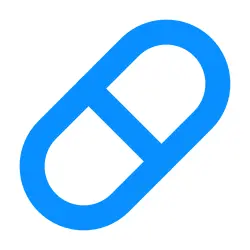Treatments (0)
Advice for Gonorrhea Treatment
Gonorrhea’s symptoms are usually undetected, especially in women, which leads to making it contagious unknowingly. And when symptoms occur, they vary from person to person.
- For Men: Some men notice a burning sensation during urination, white/green/yellow discharge from the penis, pain and swelling in the testicles, and inflammation of the foreskin.
- For Women: Women tend to suffer from a burning sensation during inflation, increased vaginal discharge, bleeding between periods, pelvic pain, and pain during sex.
Gonorrhea is diagnosed through urine, swab, or blood test. Urine tests are common in men, while swab tests happen in women.
While purchasing Farmeci, the treatment pack consists of both a testing kit and tablets for Gonorrhea treatment.
Firstly, Gonorrhea is treated with antibiotics, and the healthcare provider prescribes dosages after evaluating the severity of the disease. You can visit our medication page to buy gonorrhea treatment online in uk from us.
You must complete the entire medication course even if you feel good after a few days. As a result, the infection is fully eradicated from your body.
First, abstain from having sexual intercourse to avoid spreading the infection. And if at all you have sex, make sure you use a condom as protection. Make sure you and your partner regularly get tested for STIs.
Moreover, it is possible to successfully avoid gonorrhea and other STIs by using the right method of contraception and implementing other safety measures, such as:
- Using a condom to cover the penis or a latex or plastic square (dam) to cover the female genitals if you have oral sex.
- Using male condoms or female condoms every time you have vaginal sex or male condoms during anal sex.
- Not sharing sex toys, washing them before use, and covering them with a fresh condom.
Gonorrhea Treatment FAQs (8)
Gonorrhea can be acquired by unprotected vaginal, anal, or oral sex by any sexually active individual.
Ask your healthcare practitioner if you should be checked for gonorrhoea or other STDs if you engage in sexual activity in an open and sincere conversation. Every year, you should get tested for gonorrhoea if you're a sexually active male who is gay, bisexual, or who has intercourse with other men. Every year, you should get tested for gonorrhoea if you are a sexually active woman under the age of 25 or an older woman with risk factors like new or many partners or a partner who has an STD.
Gonorrhea can be passed to your unborn child if you have it while pregnant. Your infant may experience severe health issues as a result of this. It is crucial that you speak with your clinician if you are expecting so that you can receive the proper evaluation, testing, and treatment as needed. Health concerns for your unborn child will be less likely if you treat gonorrhoea as soon as possible.
After taking all prescribed medications, you should wait seven days before having intercourse. You and your sex partner(s) should postpone having intercourse until you have both finished your treatment for gonorrhoea in order to prevent contracting it again or passing it on to your partner(s). If you've already had gonorrhoea and taken medication, you still risk becoming infected if you engage in unprotected sex with someone who has the disease.
According to estimates from the World Health Organization (WHO), 78 million new cases of gonorrhea among adults and children aged 15 to 49 worldwide occurred in 2012, with around 27 million existing cases.
Around 4.6 million new cases of female cases and 6.4 million new cases of male cases were reported in the Region of America in 2012, on top of the approximately 1.9 million existing cases of female cases and 1.6 million existing cases of male cases.
Chlamydia infections occur in 10–40% of gonorrhea patients.
Yes, gonorrhea is a sexually transmitted infection (STI) caused by the bacterium Neisseria gonorrhoeae, and it is curable with appropriate medical treatment. However, it is important to note that untreated gonorrhea can lead to serious health complications, such as pelvic inflammatory disease (PID), infertility, and an increased risk of acquiring or transmitting HIV.
The recommended treatment for gonorrhea usually involves antibiotics, specifically Suprax (400mg) tablets and four Azithromycin tablets to provide dual therapy. It is essential to complete the full course of antibiotics as a healthcare provider prescribes, even if symptoms disappear before the medication is finished.
If you want to buy gonorrhea treatment online in uk, check with farmeci, a registered and trusted pharmacy.
- Scroll to the top of the page and click on the picture of Cefixime and Azithromycin (Medications for Gonorrhea), or Search Gonorrhea tablets in the search bar.
- Scroll down and click on “Start assessment to request medication.”
- Complete the assessment and get your order placed.
The combination of Azithromycin and Cefixime provides two benefits:
- Cefixime attacks bacteria,
- Azithromycin eliminates the remaining bacteria from the genital tract
At farmeci, online medical consultation is an easy process, consisting the following steps:
- Navigate through treatments
- Select the category
- Select the medicine
- Scroll through and click on “Start assessment to request medication
- Complete the assessment and buy your medicine


